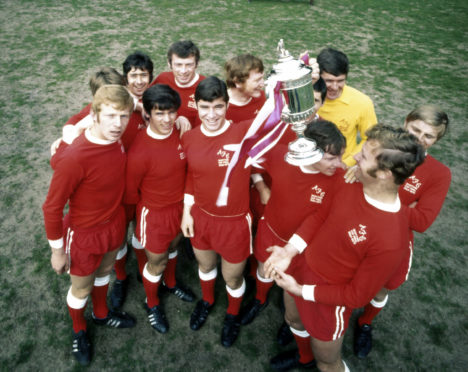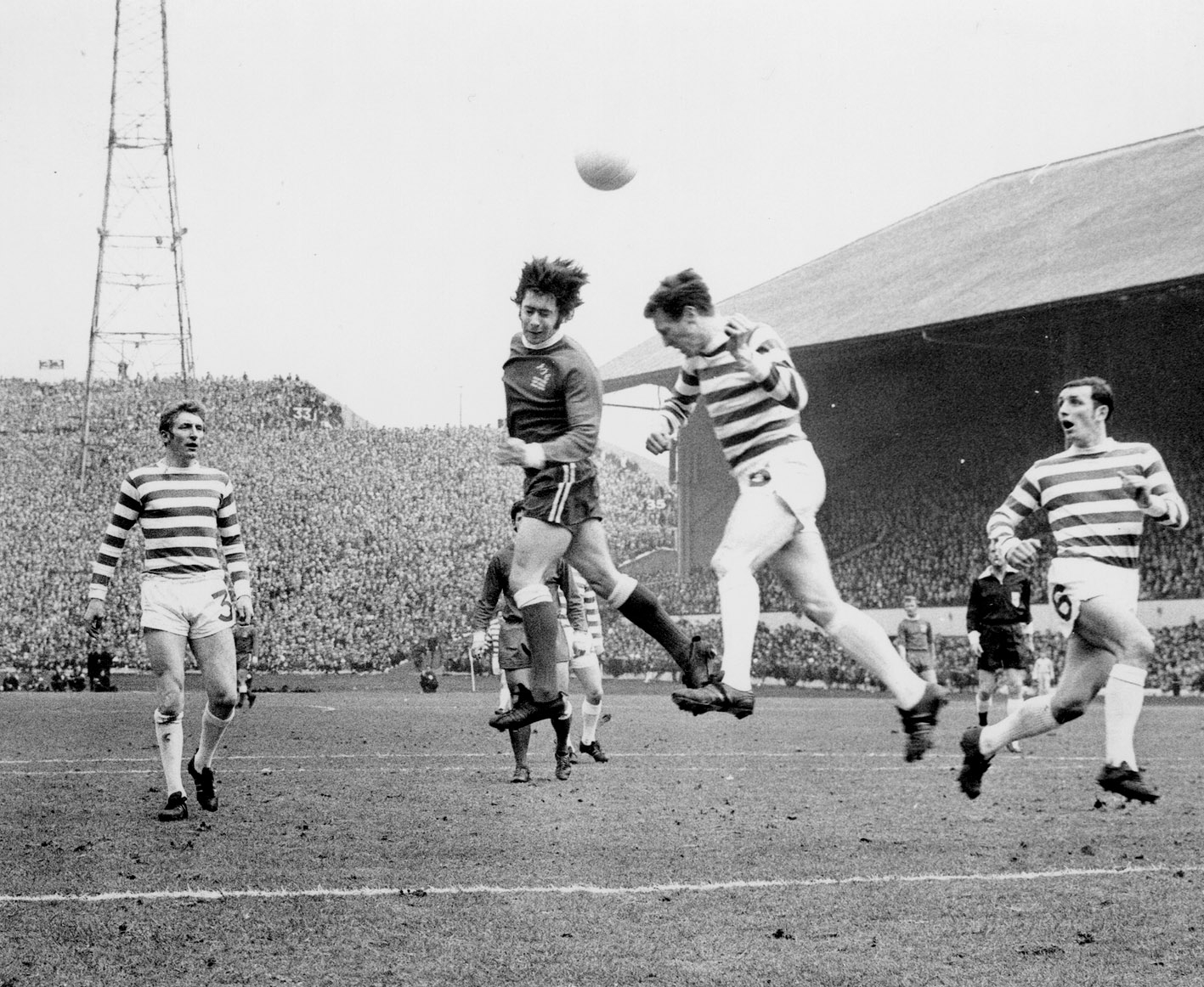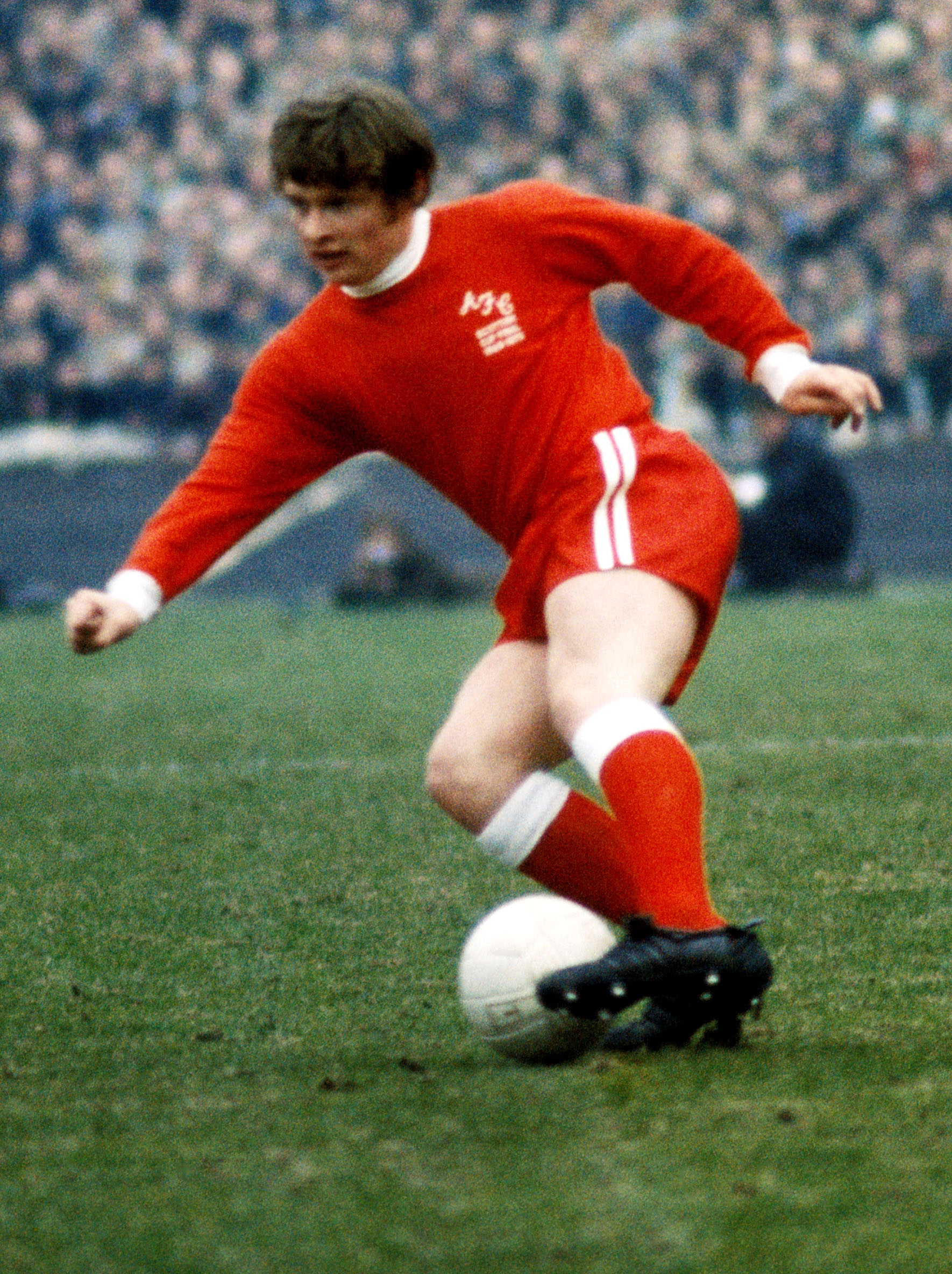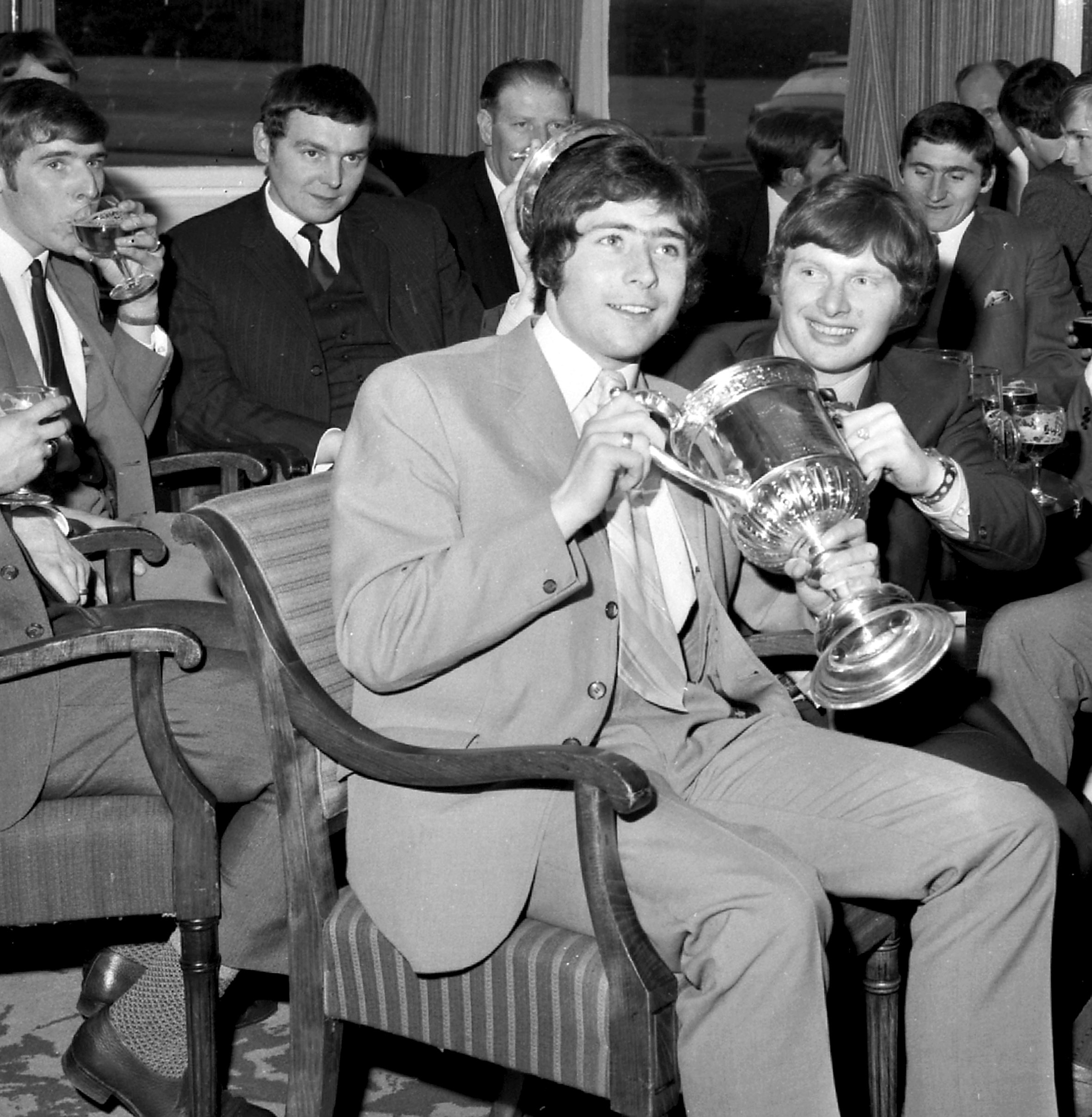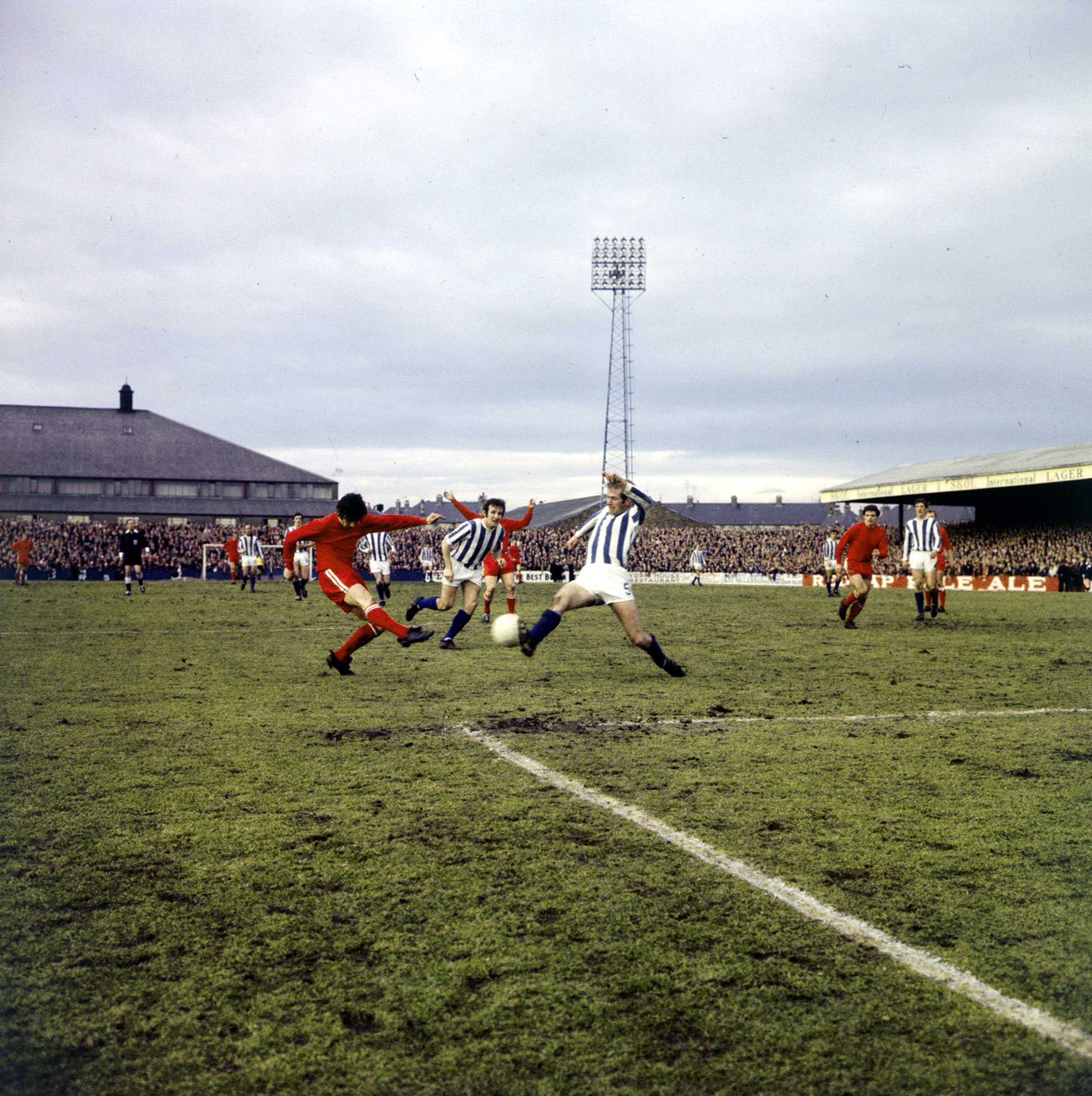Aberdeen goalkeeping legend Bobby Clark believes his side was destined to lift the Scottish Cup in 1970.
Today is the 50th anniversary of one of the Dons’ great Scottish Cup wins as they stunned the all-conquering Celtic 3-1 in front of 108,434 supporters at Hampden.
From the timing of the game, the fearless nature of the young Dons and the emergence of an unsung hero in 21 year-old Derek “Cup-Tie” McKay, all the elements combined to give manager Eddie Turnbull his finest moment as manager.
For Clark, it was simply meant to be.
He said: “We had arrived at Hampden feeling we were a team of destiny. Tom McMillan and I were the only survivors from the 1967 cup final when we had lost 2-0 to Celtic and the build-up could not have been more different.
“Three years previously Eddie wasn’t there after missing the final due to illness and we didn’t get to Hampden until 2.30pm. (Coach) Davie Shaw tried his best, but we were without our leader.
“But everything had gone smoothly in the build-up to this game and the feeling was very different in the dressing room.
“Looking back, the fact the final fell between the first and second legs of Celtic’s European Cup semi-final against Leeds United played into our hands perfectly.
“We went into the game with real confidence. We had gone to Celtic in the build-up to the final and beaten them.
“We were so relaxed. It was only as I got older that I remember being nervous.”
Joe Harper, the greatest striker in the club’s history, was asked to sacrifice his usual role leading the line for the team by Turnbull and Clark believes the tweak proved pivotal in the tactical battle of wits between the Dons boss and his legendary Celtic counterpart Jock Stein.
The Dons goalkeeper said: “With wee Joe we knew we had a goal threat at any moment but Eddie didn’t play Joe high in a traditional centre forward role.
“We played 4-3-3 against Celtic’s 4-2-4 and the extra man in midfield really gave us control. Joe was such an underrated player. He was a brilliant goalscorer, but there was so much more to his game.
“He could take the ball and play passes and Eddie played Joe in behind the midfield knowing Jim Forrest, who had tremendous pace, would run into the gap and it caused Billy McNeill and Jim Brogan of Celtic huge problems.
Harper put the Dons ahead from the penalty spot in 27 minutes before McKay secured his place in Aberdeen’s history by scoring twice late on, either side of a Bobby Lennox goal, to bring the cup back to Aberdeen.
Clark said: “Derek had been in the reserves with me for the first half of the season and did well, but I couldn’t have predicted what was to come.
“His career at the club blossomed then died, but he certainly made his time count.”
Clark says you can’t underestimate McKay’s impact before Hampden
The legend of Derek McKay was secured with his two goals in the Scottish Cup final win against Celtic 50 years ago, but Bobby Clark insists McKay’s impact in the run to Hampden should not be overlooked
Aberdeen did it the hard way, incurring the wrath of their own support in the second round before climbing out of the sickbeds in the quarter-final.
But the run to Hampden was every bit as eventful as the big game itself.
Clark recalled: “My campaign started in the second round game against Clydebank. The pitch was awful, frosted over but we squeezed through 2-1.
“Eddie Turnbull didn’t say much after the game other than ‘well done lads, you have kept a few of us in a job today.’ Even though we had won we got very little credit for it.”
The Clydebank tie was far from pretty, but the resolve and grit shown by the players in the quarter-final at Falkirk epitomised the spirt in the camp.
Clark said: “That game was where Cup-Tie McKay was born.
In the build-up to the game we had been struck down by a flu bug, to the extent Eddie Turnbull tried to have the game postponed. We even produced medical certificates, but the SFA turned down the request and with 12 guys off their sick beds out we went.
“Derek, who had rarely played since moving from Dundee, was given a rare start on what was a mudbath of a pitch at Brockville and scored the only goal of the game to send us through to the semi-final, where he scored the only goal again as we beat Kilmarnock 1-0.
“His nickname had been earned long before the big game.”
